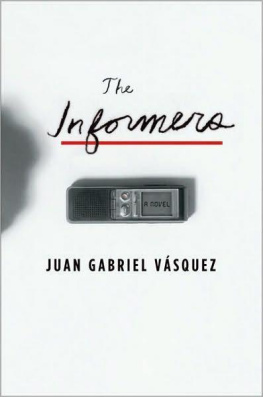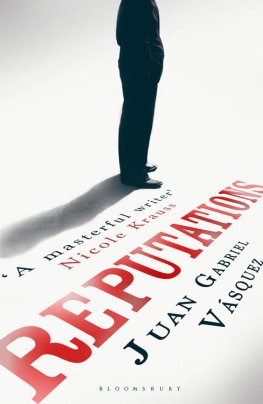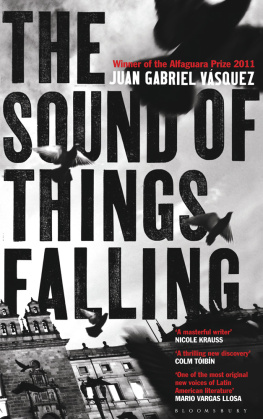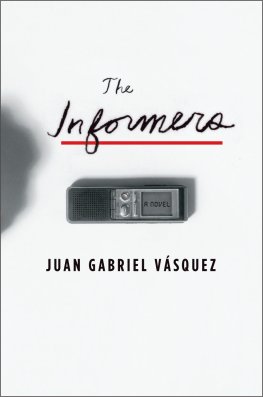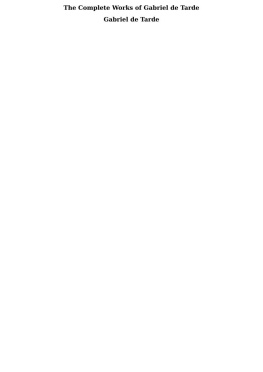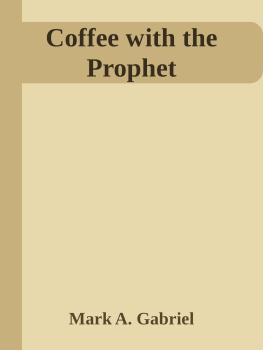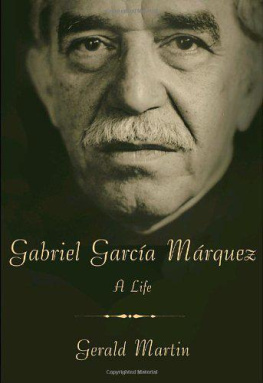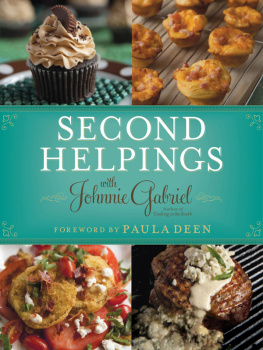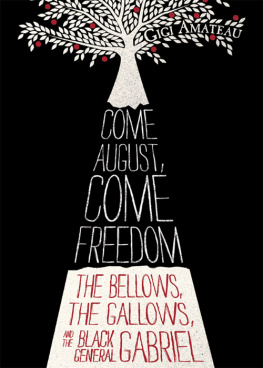Table of Contents

RIVERHEAD BOOKS
Published by the Penguin Group
Penguin Group (USA) Inc., 375 Hudson Street, New York, New York 10014,
USA * Penguin Group (Canada), 90 Eglinton Avenue East, Suite 700,
Toronto, Ontario M4P 2Y3, Canada (a division of Pearson Canada Inc.)
Penguin Books Ltd, 80 Strand, London WC2R 0RL, England Penguin Ireland,
25 St Stephen's Green, Dublin 2, Ireland (a division of Penguin Books Ltd)
Penguin Group (Australia), 250 Camberwell Road, Camberwell, Victoria 3124,
Australia (a division of Pearson Australia Group Pty Ltd) Penguin Books
India Pvt Ltd, 11 Community Centre, Panchsheel Park, New Delhi-110 017,
India Penguin Group (NZ), 67 Apollo Drive, Rosedale, North Shore 0632,
New Zealand (a division of Pearson New Zealand Ltd) Penguin Books
(South Africa) (Pty) Ltd, 24 Sturdee Avenue, Rosebank, Johannesburg 2196,
South Africa
Penguin Books Ltd, Registered Offices: 80 Strand, London WC2R 0RL, England
First published in the United States 2009
Copyright (c) 2004 by Juan Gabriel Vasquez
English translation (c) 2008 by Anne McLean
All rights reserved. No part of this book may be reproduced, scanned, or distributed in any printed or electronic form without permission. Please do not participate in or encourage piracy of copyrighted materials in violation of the authors' rights. Purchase only authorized editions.
Library of Congress Cataloging-in-Publication Data
Vasquez, Juan Gabriel, date.
[Informantes. English]
The informers / Juan Gabriel Vasquez ; translated from the Spanish by
Anne McLean.
p. cm.
eISBN : 978-1-101-10516-0
1. Colombia--History--20th century--Fiction. I. Title.
PQ8180.32.A
863'.6--dc22
This is a work of fiction. Names, characters, places, and incidents either are the product of the author's imagination or are used fictitiously, and any resemblance to actual persons, living or dead, businesses, companies, events, or locales is entirely coincidental.
While the authors have made every effort to provide accurate telephone numbers and Internet addresses at the time of publication, neither the publisher nor the authors assume any responsibility for errors, or for changes that occur after publication. Further, the publisher does not have any control over and does not assume any responsibility for author or third-party websites or their content.
http://us.penguingroup.com
FOR FRANCIS LAURENTY
(1924-2003)
You will never wash out that stain; you cannot talk long enough for that.
--DEMOSTHENES, "On the Crown"
Who wishes to speak?
Who wishes to rake up old grievances?
Who wishes to be answerable to the future?
--DEMOSTHENES, "On the Crown"
I.
THE INADEQUATE LIFE
On the morning of April 7, 1991, when my father telephoned to invite me to his apartment in Chapinero for the first time, there was such a downpour in Bogota that the streams of the Eastern Hills burst their banks, and the water came pouring down, dragging branches and mud, blocking the sewers, flooding the narrowest streets, lifting small cars with the force of the current, and even killing an unwary taxi driver who somehow ended up trapped under the chassis of his own vehicle. The phone call itself was at the very least surprising, but on that day seemed nothing less than ominous, not only because my father had stopped receiving visitors a long time before, but also because the image of the water-besieged city, the motionless traffic jams and broken stoplights and marooned ambulances and unattended emergencies, would have sufficed under normal circumstances to convince anyone that going out to visit someone was imprudent, and asking someone to come to visit almost rash. The scenes of Bogota in chaos attested to the urgency of his call and made me suspect that the invitation was not a matter of courtesy, suggesting a provisional conclusion: we were going to talk about books. Not just any old book, of course; we'd talk about the only one I'd then published, a piece of reportage with a TV-documentary title-- A Life in Exile , it was called--that told or tried to tell the life story of Sara Guterman, daughter of a Jewish family and lifelong friend of ours, beginning with her arrival in Colombia in the 1930s. When it appeared in 1988, the book had enjoyed a certain notoriety, not because of its subject or its debatable quality, but because my father, a professor of rhetoric who never deigned to sully his hand with any form of journalism, a reader of classics who disapproved of the very act of commenting on literature in print, had published a savage review of it in the Sunday magazine of El Espectador . It's perhaps understandable that later, when my father sold the family home at a loss and took a lease on a refuge for the inveterate bachelor he pretended to be, I wasn't surprised to hear the news from someone else, even if it was from Sara Guterman, my least distant someone else.
So the most natural thing in the world, the afternoon I went to see him, was to think it was the book he wanted to discuss with me: that he was going to make amends, three years late, for that betrayal, small and domestic though it may have been, but no less painful for that. What happened was very different. From his domineering, ocher-colored armchair, while he changed channels with the solitary digit of his mutilated hand, this aged and frightened man, smelling of dirty sheets, whose breathing whistled like a paper kite, told me, in the same tone he'd used all through his life to recount an anecdote about Demosthenes or Gaitan, that he'd spent the last three weeks making regular visits to a doctor at the San Pedro Claver Clinic, and that an examination of his sixty-seven-year-old body had revealed, in chronological order, a mild case of diabetes, a blocked coronary artery--the anterior descending--and the need for immediate surgery. Now he knew how close he'd been to no longer existing, and he wanted me to know, too. "I'm all you've got," he said. "I'm all you've got left. Your mother's been buried for fifteen years. I could have not called you, but I did. You know why? Because after me you're on your own. Because if you were a trapeze artist, I'd be your only safety net." Well then, now that sufficient time has passed since my father's death and I've finally decided to organize my head and desk, my documents and notes, to get this all down in writing, it seems obvious that I should begin this way: remembering the day he called me, in the middle of the most intense winter of my adult life, not to mend the rift between us, but in order to feel less alone when they opened his chest with an electric saw and sewed a vein extracted from his right leg into his ailing heart.
It had begun with a routine check-up. The doctor, a man with a soprano's voice and a jockey's body, had told my father that a mild form of diabetes was not entirely unusual or even terribly worrying at his age: it was merely a predictable imbalance and wasn't going to require insulin injections or drugs of any kind, but he would need to exercise regularly and observe a strict diet. Then, after a few days of sensible jogging, the pain began, a delicate pressure on his stomach, rather resembling a threat of indigestion or something strange my father might have swallowed. The doctor ordered new tests, still general ones but more exhaustive, and among them was a test of strength; my father, wearing underpants as long and baggy as chaps, first walked then jogged on the treadmill, and then returned to the tiny changing room (in which, he told me, he'd felt like stretching his arms, and, realizing the place was so small he could touch the facing walls with his elbows, suffered a brief attack of claustrophobia), and when he'd just put on his flannel trousers and begun to button up the cuffs of his shirt, already thinking about leaving and waiting for a secretary to call him to pick up the results of his electrocardiogram, the doctor knocked on the door. He was very sorry, he said, but he hadn't liked what he'd seen in the initial results: they were going to have to do a cardiac catheterization immediately to confirm the risks. And they did, of course, and the risks (of course) were confirmed: there was an obstructed artery.
Next page
